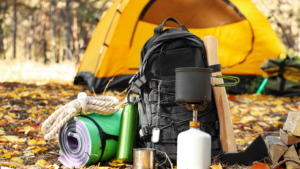In the unpredictable world we live in, survival skills are more than just a concept from reality TV shows. They’re a valuable set of abilities that could make a difference between life and death in extreme situations. This article delves into the essential aspects of survival skills training, providing insights into why it’s important and how it can equip you with practical knowledge for the unexpected.
Whether you’re an outdoor enthusiast, an adventurer, or just someone looking to be prepared, survival skills training is an investment in safety and resilience. From learning how to find water to mastering the art of building a shelter, these skills can be lifesavers. So, buckle up as we take a journey into the world of survival skills training, where preparedness meets practicality.
Survival Skills Training
 A deeper understanding of survival skills training uncovers its immense value beyond life-threatening situations. Underneath, it’s an investment in self-confidence and resourcefulness. The subsequent sections delve deeper into the significance of these skills and the various types they encompass. Survival skills don’t merely equip individuals for wilderness adventures; they foster independence and adaptability. Preparedness empowers people, enabling them to handle challenges they might otherwise deem daunting. Harnessing survival skills enhances decision-making under pressure, adds to a person’s resourcefulness and augments self-reliance. Indeed, survival skills training molds resilience, instills mental strength and boosts confidence levels, all of which are beneficial in routine life situations.
A deeper understanding of survival skills training uncovers its immense value beyond life-threatening situations. Underneath, it’s an investment in self-confidence and resourcefulness. The subsequent sections delve deeper into the significance of these skills and the various types they encompass. Survival skills don’t merely equip individuals for wilderness adventures; they foster independence and adaptability. Preparedness empowers people, enabling them to handle challenges they might otherwise deem daunting. Harnessing survival skills enhances decision-making under pressure, adds to a person’s resourcefulness and augments self-reliance. Indeed, survival skills training molds resilience, instills mental strength and boosts confidence levels, all of which are beneficial in routine life situations.
Benefits of Survival Skills Training
 on the advantages of survival skills training, two key benefits surface prominently: improved self-confidence and enhanced problem-solving abilities. Inherent in the process of survival skills training, there’s a marked boost in self-confidence. The participant learns to trust their instincts, realizing they’re capable of performing tasks which previously seemed unthinkable. For example, constructing a secure shelter from nature’s materials or foraging for sustainable food in an unknown environment. With every new skill mastered, self-confidence skyrockets. They learn to rely on their abilities, instilling a heightened sense of self-belief that transcends initially intended survival scenarios and seeps into daily life.
on the advantages of survival skills training, two key benefits surface prominently: improved self-confidence and enhanced problem-solving abilities. Inherent in the process of survival skills training, there’s a marked boost in self-confidence. The participant learns to trust their instincts, realizing they’re capable of performing tasks which previously seemed unthinkable. For example, constructing a secure shelter from nature’s materials or foraging for sustainable food in an unknown environment. With every new skill mastered, self-confidence skyrockets. They learn to rely on their abilities, instilling a heightened sense of self-belief that transcends initially intended survival scenarios and seeps into daily life.
Enhancing Problem-Solving Abilities
In addition to fostering self-confidence, survival skills training fine-tunes problem-solving abilities. These training scenarios compel individuals to make the best of limited resources, often prompting on-the-spot decision-making. Whether it’s improvising a rescue signal with scant materials, or deciding which berries are edible, they’re actively learning to identify, analyze, and solve problems effectively under pressure. For example, if they’re devoid of water, the individual learns to construct a solar still, or collect dew as an alternative. This holistic approach empowers learners to approach real-world challenges with a keen eye, adaptable mind, and a solution-focused attitude.
Becoming Proficient in Survival Skill
 For one to become proficient in survival skills, both self-learning and structured training matter. They include methods to master these life-saving skills effectively and build resilience for unexpected situations. Survival skills training programs, designed by experts, hold paramount significance. They provide a controlled environment where individuals can learn, practice and master various survival techniques. These programs often combine both theoretical knowledge and practical exercises. Examples include training areas such as water procurement, food acquisition, fire-making, shelter building, orientation and first-aid. To maximize the learning experience, these programmes often simulate real-life survival scenarios. Here, individuals get a chance to apply what they’ve learned effectively.
For one to become proficient in survival skills, both self-learning and structured training matter. They include methods to master these life-saving skills effectively and build resilience for unexpected situations. Survival skills training programs, designed by experts, hold paramount significance. They provide a controlled environment where individuals can learn, practice and master various survival techniques. These programs often combine both theoretical knowledge and practical exercises. Examples include training areas such as water procurement, food acquisition, fire-making, shelter building, orientation and first-aid. To maximize the learning experience, these programmes often simulate real-life survival scenarios. Here, individuals get a chance to apply what they’ve learned effectively.
Notably, experienced instructors guide these programs, and they continuously assess the participants to ensure the comprehension of the skills.
Self-learning, though highly beneficial, isn’t always sufficient. For example, learning survival skills from books or online sources can offer basic knowledge about survival techniques. They represent one aspect of survival skills mastery — acquiring the knowledge.
Conversely, structured training provides the other part — application of knowledge. By practicing under the watchful eyes of an experienced instructor, individuals get hands-on experience. They apply skills in simulated real-life scenarios, ensuring they can cope with actual emergencies.
While self-learning introduces the theoretical constructs of survival skills, structured training fosters an understanding of their practical application. Both approaches, used in conjunction, empower individuals to deal with unpredictable situations confidently and adaptively.

